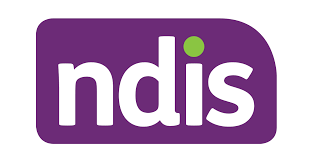National Disability Insurance Scheme (NDIS)
The National Disability Insurance Scheme (NDIS) provides support for eligible Australians (Australian citizens, Permanent or Special Category Visa holders) with intellectual, physical, sensory, cognitive and psychosocial disability. Through the NDIS, eligible people with disability are able to access the reasonable and necessary supports they need to achieve their goals and participate in activities of daily living. The aim is to build capacity for individuals to live independently.
If you have TSC (Tuberous Sclerosis Complex) and want access to support under the NDIS, you might be able to meet the disability requirements. People with certain medical conditions, listed as ‘List A,’ are considered to cause permanent impairment and disability, resulting in substantially reduced functional capacity. For those conditions, you only need to provide evidence that you have the condition, and that it has been diagnosed and assessed based on specific criteria. You don’t have to provide more information unless asked. People with TSC fall under ‘List B’ medical conditions, which means that they have a permanent impairment, but the severity of the impairment can vary. Therefore, to be eligible for NDIS support, you need to show that your TSC has caused substantially reduced functional capacity or psychosocial functioning and has affected your capacity for social or economic participation. You also need to demonstrate that you’re likely to require support under the NDIS for the rest of your life. You can read more about this here.
Most children’s NDIS plans include funding for allied health therapists. Allied health therapists work by helping you to help your child. Therapy should be family focused because you are the most important people in your child’s life. For an overview of the types of therapy that are available click here.
Respite is important. It provides a short break for you and your child and usually means someone else cares for your child to give your family time away from the physical and emotional demands of caring. It may be possible to get respite built in to your child’s NDIS plan. Click here to find out more.
For children under the age of 7, Early Childhood Partners work with families to deliver Early Childhood Early Intervention or ECEI. You can obtain more information about early childhood partners and their role here.
To apply you need to make an Access Request. You can do this by calling the NDIS on 1800 800 100 or by completing and submitting the request form at What is an Access Request Form? | NDIS
You will be asked to submit evidence including reports and assessments on the impacts of a disability such as health practitioner and therapist reports. The forms can be downloaded from the website at Providing evidence of your disability | NDIS
If you need assistance applying you can approach a Local Area Coordinator (LAC) or ECEI Coordinator. You can identify a LAC or NDIS office in your area here: Offices and Contacts in your Area finder
If you are eligible for the NDIS, you will be contacted to arrange a planning meeting to discuss your support and funding needs.
Having TSC does not automatically mean you will have access to NDIS support. Different disabilities associated with TSC will require different supports and funding. Unfortunately, the NDIS decisions on funding can be inconsistent even if you provide documentation and a well prepared for meetings. Explaining what TSC is and how complex the disabilities and associated symptoms are can be helpful to increase understanding. We recommend explaining TSC using language from the TSA website, such as:
TSC is a rare genetic condition that causes tumours to grow in any organ of the body. It commonly affects the brain, skin, heart, lungs and kidneys. TSC can cause epilepsy, developmental delay and autism. It affects more than 2,000 people in Australia. There is no known cure, but with appropriate support most people with TSC can live fulfilling lives.
To further explain your individual circumstances such signs and symptoms we suggest using the TSC information pages on this website.
If you are not eligible for the NDIS, you can still get information and help from an LAC or ECEI Coordinator to access supports and services in your community. If your situation changes in the future or if you have new evidence, you can make a new access request. You have the right to ask the NDIA for an internal review of your access decision. If you disagree with the NDIA’s review of your access request, you can apply for a review by the Administrative Appeals Tribunal (AAT).
Further sources of information:
Feedback and complaints | NDIS
NDIS and Advocacy – People with Disability Australia (pwd.org.au)
To get ready for the planning meeting – think about the current supports in place – who provides them and what supports, and services may be needed. For more specific information on how to organise this information download the participant planning book at Applying to access the NDIS | NDIS. It is important that this document helps the reviewers understand what life is like for you – what is working well or not; what your goals are. A carer’s statement and a participant statement are important, as it helps reviewers understand what your day to day life is like.
The ECEI or LAC Planner will then contact you to arrange a time to have your planning meeting – either in person or over the phone. During this meeting you will set goals that will help to build a personalised plan.
If you have young children you can find more information on specific interventions that they might like to consider as part of their plan at Choosing early intervention for disability | Raising Children Network
As part of the meeting, you will be asked how you want to manage your NDIS funding. A summary table below outlines the differences.
There are 3 types of support budgets that may be funded in your NDIS plan:
- Core support budgets
- Capacity building support budgets
- Capital supports budgets
To find out more about what these mean visit Support budgets in your plan | NDIS.
Be prepared! Have as much information as you can ready. Talk to other families about what they are requesting to get ideas about what might be useful in your situation.
If you want to be put in contact with another family who has navigated the NDIS process, please contact TSA on 1300 733 435. Although everyone’s situation is different, it can be helpful to discuss strategies that other people have found useful.
Remember, processes can change over time. Keep up to date by checking the NDIS website at National Disability Insurance Scheme (NDIS) or by calling 1800 800 110. You can sign up for the latest news and updates at News and events | NDIS
The SWAN website is also an excellent source of information.
Epilepsy Action Australia can help with epilepsy-specific assessment needs. To read more about the support they can offer click here.
Find Support
NDIS funding Summary Table
| I can… | Self-managed | Plan-managed | NDIA-managed |
|---|---|---|---|
| Have choice and control over the providers I use | ✓ | ✓ | ✓ |
| Use NDIS registered providers | ✓ | ✓ | ✓ |
| Use non-registered providers | ✓ | ✓ (Although your Plan Manager must be a registered provider.) | No. You must use registered providers when your plan is NDIA-managed. |
| Negotiate pricing to pay less than the NDIS Price Guide | ✓ | ✓ | ✓ |
| Pay more than the NDIS Price Guide | ✓ | No. Providers delivering supports to a participant using a Plan Manager cannot charge more than the NDIS price guide. | No. Providers delivering supports to a participant whose plan is managed by the NDIA cannot charge more than the NDIS price guide. |
| Make value-for-money decisions in line with my plan | ✓ | ✓ | ✓ |
| View my plan on the my place portal to keep track of my budget | ✓ | ✓ | ✓ |
| Manage book-keeping and records of my spending | ✓ | No. Your Plan Manager will do this for you. | No. The NDIA will do this for you. |



